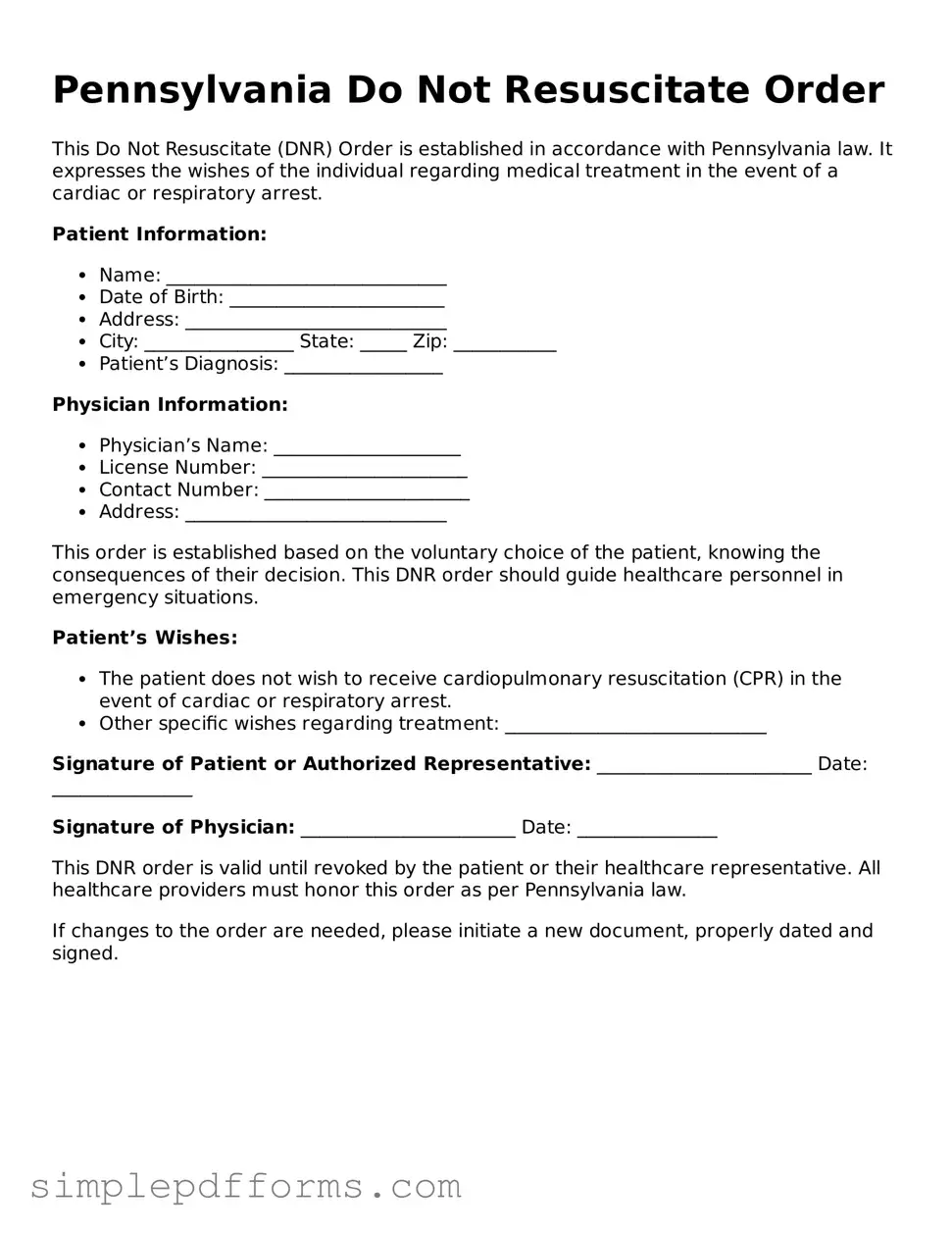Attorney-Verified Do Not Resuscitate Order Document for Pennsylvania State
A Pennsylvania Do Not Resuscitate Order (DNR) form is a legal document that allows individuals to refuse resuscitation efforts in the event of cardiac or respiratory arrest. This form ensures that medical personnel respect a person's wishes regarding end-of-life care. Understanding the DNR form is crucial for individuals and families when making informed healthcare decisions.
Open Do Not Resuscitate Order Editor Now

Attorney-Verified Do Not Resuscitate Order Document for Pennsylvania State
Open Do Not Resuscitate Order Editor Now

Open Do Not Resuscitate Order Editor Now
or
Get Do Not Resuscitate Order PDF Form
Your form is waiting for completion
Complete Do Not Resuscitate Order online in minutes with ease.